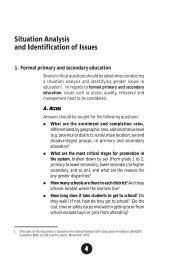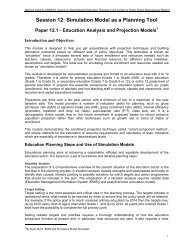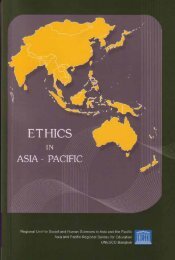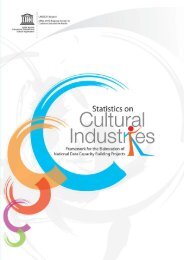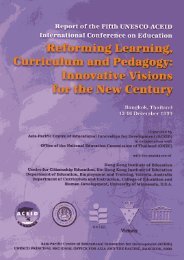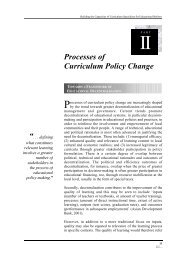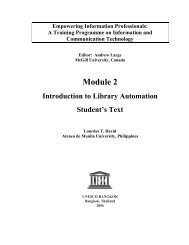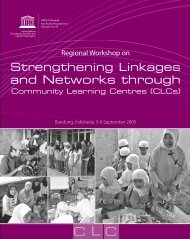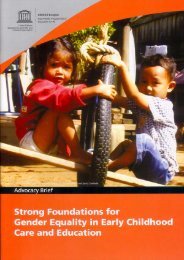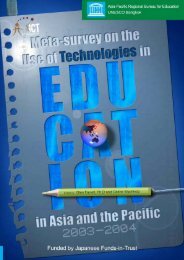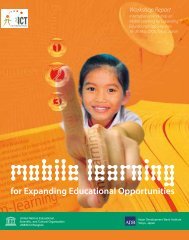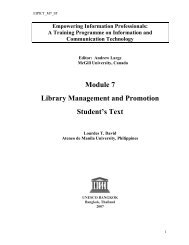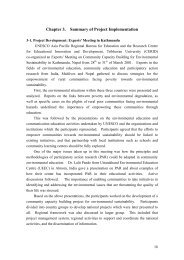Download PDF, 752KB - UNESCO Bangkok
Download PDF, 752KB - UNESCO Bangkok
Download PDF, 752KB - UNESCO Bangkok
You also want an ePaper? Increase the reach of your titles
YUMPU automatically turns print PDFs into web optimized ePapers that Google loves.
Over the nearly three decades since APEID was launched through the<strong>UNESCO</strong> General Conference, the contexts and content of development,which educational innovations should serve and aim at, have profoundlychanged. Roles of education have been much expanded to function as adriving force of sustainable development, a tool of empowerment ofpeople, a corner stone of a culture of peace, and a fundamental means tothe full flowering of human potential toward a learning society.APEID is a co-operative programme of the Member States, by theMember States, and for the Member States, in jointly facilitating,undertaking, disseminating and replicating development-orientededucational innovations. APEID is significant as much for what it doesas for the way it works. It encourages various innovations which covereducational policies, strategies, structures, contents, methods andtechnologies and which are conducive to development. APEID seeks tostrike roots in the region in an unusual fashion. Organizationally, APEIDhas evolved into a ‘network of networks’, including Associated Centres,ASPnet, UNEVOC centres and UNITWIN/Chair programmesfunctioning in the region, and APNIEVE (Asia-Pacific Network ofInternational Education and Values Education).It is through these networks and their member institutions that mostdynamic educational innovations have been initiated and implemented inAPEID member countries to respond to development challenges at bothlocal and global levels.In the coming Medium-Term Strategy years (2002-2007) <strong>UNESCO</strong>, infulfilling its mission of ‘contributing to peace and human development inan era of globalization through education, science, culture andcommunication’, will continue to promote educational innovation,experimentation and sharing best practices. It is the very purpose of thisAPEID series to encourage innovative reflections on education in thechanged/changing development contexts, and to record and diffusesuccessful educational innovations made by governmental and nongovernmentalorganizations and civic societies in the Member States.As the essence and test of an educational innovation lies not in itstechnical novelty, but in its relevance to development and success, wehope, and believe, that the innovations reflected in this new series willbear fruit in the Member States in the new century.Zhou NanzhaoActing Chief of ACEID<strong>UNESCO</strong> PROAPAugust 2001



